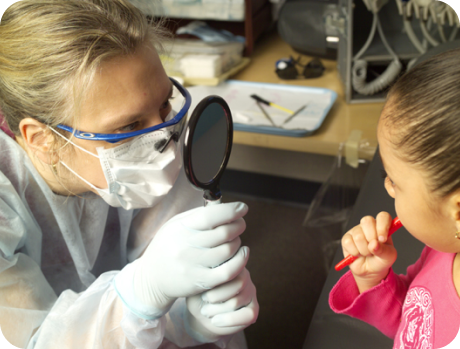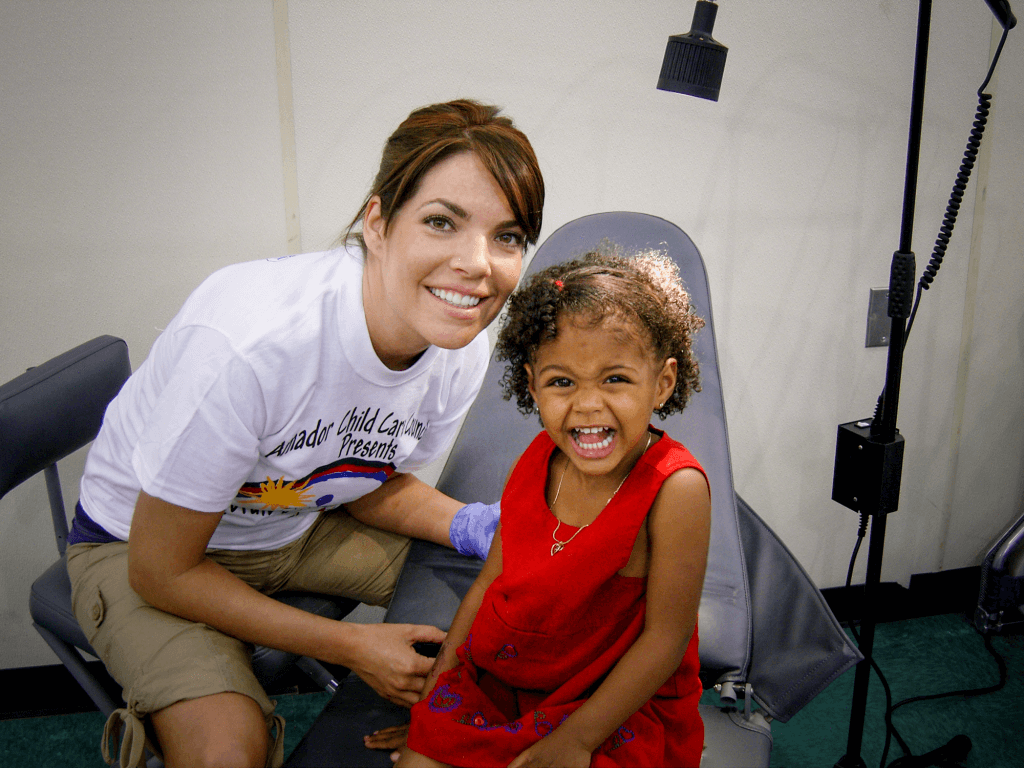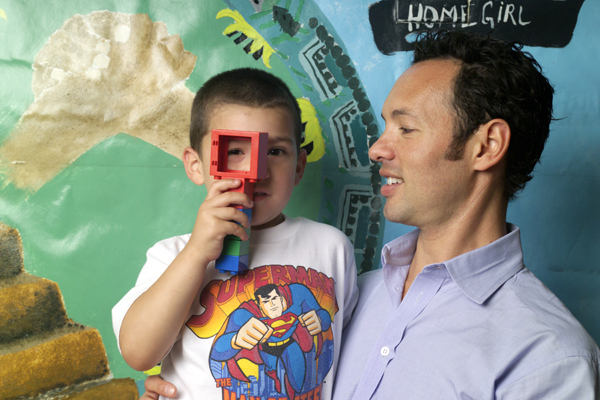The Centers For Disease Control and Prevention (CDC) has developed a checklist for parents, pediatricians, caregivers and teachers to utilize in monitoring and tracking a…

Developmental screenings can change the trajectory
for children.
The American Academy of Pediatrics recommends that children are screened at least three times by the age of three. Data shows that just 26% of children receive this screening, and, California has one of the lowest developmental screening and early intervention rates in the country.
Physician resources.
Healthcare providers have an irreplaceable role when discussing developmental and behavioral concerns and supporting families
in seeking assistance.

Early identification improves
outcomes for children
Early identification of developmental or behavioral delays in young children supports and improves long-term developmental outcomes including academic success.

Standardized screening in pediatric medical home
The pediatric medical home is the ideal setting for developmental and behavioral health screening. The addition of a standardized screening tool increases referral and identification rates!

California ranks 30th in nation for screening it's children
While 18% of the state’s children have a developmental delay or disability, only 3% of children receive early intervention by age three. Children of color and those living in low-income households are less likely to be screened than white children and those living in higher-income households.

If your practice utilizes developmental screenings, Help Me Grow can assist with:
- Follow up assistance (referrals, resources, ongoing support) for families to connect to services
- Enrollment assistance for families to access services
- Information about parenting, child wellness and other topics (eg : parent tip sheets)
- Work with patients who need monitoring between well-baby checks and, with the permission of the client, send you the results.
The American Academy of Pediatrics Practice recommends:
- A general developmental screening be completed at: 9. 18, & 24/30* months
- An autism-specific screening be completed at: 18 & 24 months
*Either 24 or 30 months depending on the likelihood of seeing the child for a well-child visit.
If your practice does NOT utilize developmental screenings, in addition to the supports listed previously, Help Me Grow can assist with:
- Incorporating surveillance in well-child visits, including tools for:
- Eliciting parental concerns
- Documenting and maintaining a developmental history
- Identifying risks and protective factors
- Conducting developmental screenings
- Establishing a formal screening process
How you can allow Help Me Grow to support your families and staff:
- Distribute the Help Me Grow flyer (eg : display extra copies in the lobby, share as part of a welcome package for the agency, exhibit during outreach events in the community)
- Request training for your staff (regarding the Help Me Grow program or general childhood development/milestones)
- Submit a referral form on behalf of a family who you think would benefit from Help Me Grow services
- Asking for information about developmental screening tools to use at your practice
Choosing a validated, standardized screening tool.
Help Me Grow Marin County recommends the use of the Ages and Stages Questionnaire-3 (ASQ-3) or the Parents’ Evaluation of Developmental Status (PEDS) for general developmental screening and the Modified Checklist in Autism for Toddles (M-CHAT) for autism-specific screening.
These tools:
- Have a relatively high sensitivity and specificity
- Are relatively low cost
- Easy to use and score
For additional information about screening tools, check out Birth to 5: Watch me Thrive! A Compendium of Screening Measures for Young Children.
For additional support and training, please contact us.
The Help Me Grow model.
What can healthcare providers do?
Learn more about screenings and how to get started.
I'm really glad to know that the developmental screening data from the Marin Community Clinics are part of a larger story for all children in Marin County. With Help Me Grow Marin, we can see what young children need and the gaps in what's currently available, and we can advocate for increased early intervention resources and services to support our youngest patients and their families.
Here you will find links to current journals and pdf's regarding developmental screenings, surveillance and assessments.
The Ages and Stages Questionnaires (ASQ) screeners are sets of valid, reliable, and age-appropriate questionnaires that were developed to be are filled out by the…

Help Me Grow Marin is here for you!
If you have concerns or questions related to your child or family needs we invite you to call Help Me Grow and discuss your confidential information. Our Care Coordinators are available for support.

